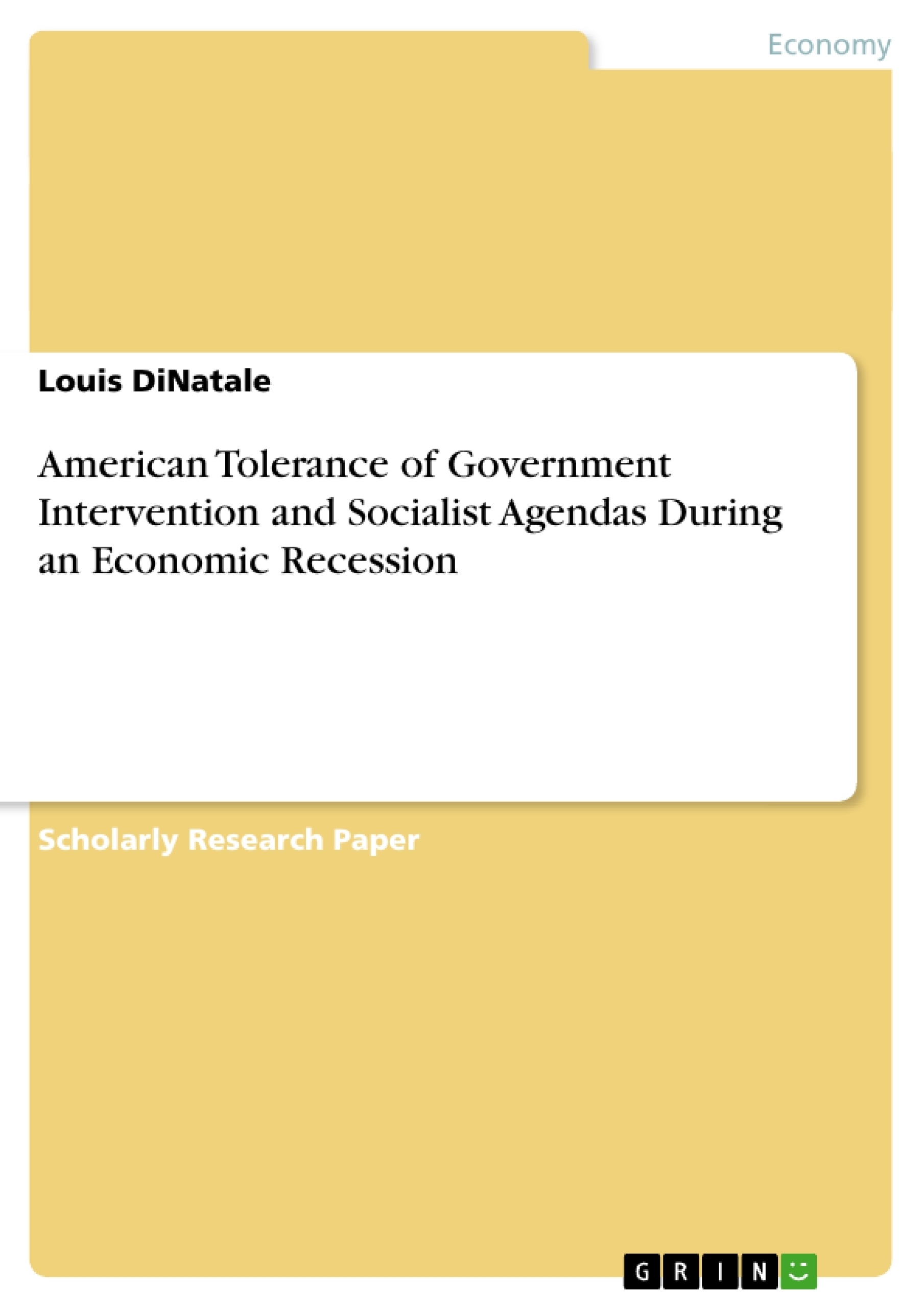This scholarly research paper analyzes whether American's predisposed opposition to socialism is genuine in light of the extensive welfare programs already administered by the United States government and plans for increasingly more government intervention. The research considers the history of America's welfare reform, American perceptions regarding the utility of welfare, and if extensive government intervention, as in the national health care plan, and radical socialistic reform are in line with American ideals and acceptable when national hegemony and economic primacy lies in jeopardy.
Inhaltsverzeichnis (Table of Contents)
- Introduction
- Background
- Research Issue
- Discussion
- Welfare or Socialism?
- American Welfare in Comparison to European Socialism
- Business' Relationship to Government Social Programs and the Economy
- Public and Governmental Response to Social Reform
- Past Three Decades of Social Reform (1980-2008)
- Future of Social Reform (2009 and Beyond)
- Implications
- The New American Welfare Recipients- Banks and Businesses
- Mounting Debt and the Dilemma of Inflationary Policies
- Why American's May Tolerate Social Reform
- How to Cover the Debt
- The Way Ahead
Zielsetzung und Themenschwerpunkte (Objectives and Key Themes)
This research paper examines the American public's tolerance for government intervention and socialist agendas during an economic recession, specifically focusing on the bailout of the automotive industry in 2008.- The role of government intervention in a free market economy during times of economic crisis.
- The public perception of socialism and its implications for government policy.
- The impact of economic recession on American society and the potential for social reform.
- The relationship between business and government social programs.
- The implications of government intervention on the future of the American economy.
Zusammenfassung der Kapitel (Chapter Summaries)
The introduction provides background on the economic crisis of 2008, highlighting the housing slump, bankruptcies, and subsequent government bailouts. It then sets the context for the research by focusing on the American automotive industry and its need for government assistance. The discussion section delves into the complexities of welfare and socialism, exploring the American perspective on these concepts. It examines the differences between American welfare programs and European socialist models, and analyzes the relationship between businesses and government social programs. The discussion then examines the public and governmental responses to social reform over the past three decades, leading into projections for future reform efforts.Schlüsselwörter (Keywords)
The main keywords and focus topics of the research are: government intervention, socialism, economic recession, automotive industry, bailout, welfare, social reform, American public opinion, and economic implications. These terms encapsulate the primary themes and concepts explored in the paper, including the relationship between government, business, and society during a period of economic crisis.Frequently Asked Questions
Is the American opposition to socialism genuine?
The research analyzes whether this opposition is consistent, given the extensive welfare programs already administered by the U.S. government and the public's tolerance for intervention during crises.
How did the 2008 economic recession impact government intervention?
The recession led to unprecedented government bailouts, particularly for banks and the automotive industry, which challenged traditional American free-market ideals.
What is the difference between American welfare and European socialism?
The paper compares American social programs with European models to determine if U.S. policies are moving toward a more radical socialistic framework.
Why do Americans tolerate social reform during recessions?
Tolerance often increases when national economic primacy and hegemony are at risk, making radical reforms seem acceptable as temporary or necessary survival measures.
What are the implications of mounting national debt?
The research discusses the dilemma of inflationary policies and the long-term economic consequences of financing massive government interventions.
What was the public response to the automotive industry bailout?
The response was complex, reflecting a tension between the desire for economic stability and the predisposed ideological opposition to government-run businesses.
- Arbeit zitieren
- Louis DiNatale (Autor:in), 2009, American Tolerance of Government Intervention and Socialist Agendas During an Economic Recession, München, GRIN Verlag, https://www.grin.com/document/137563



